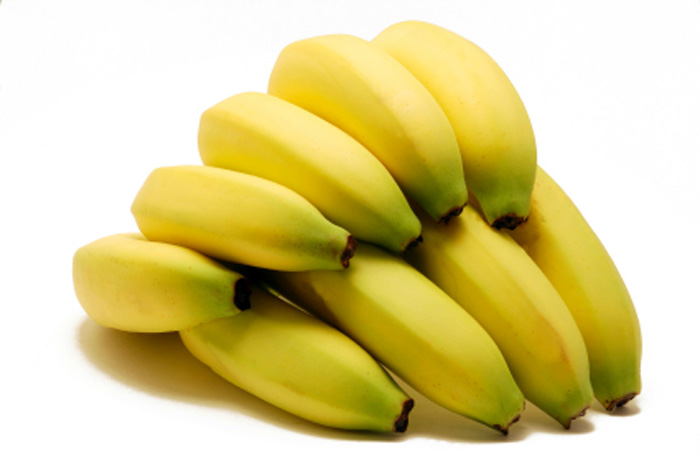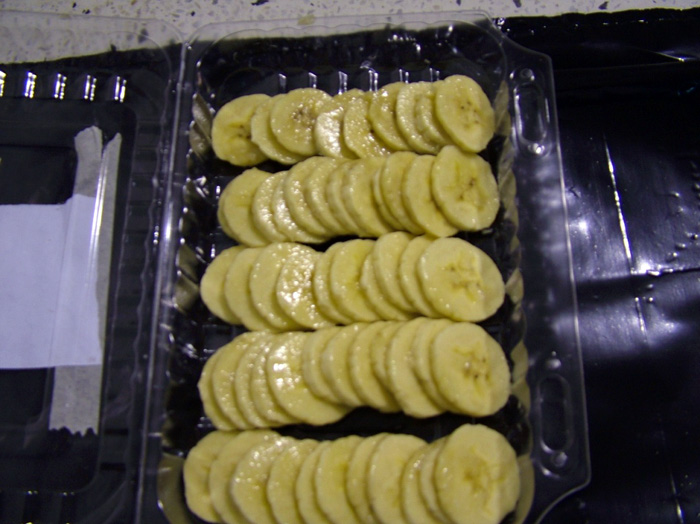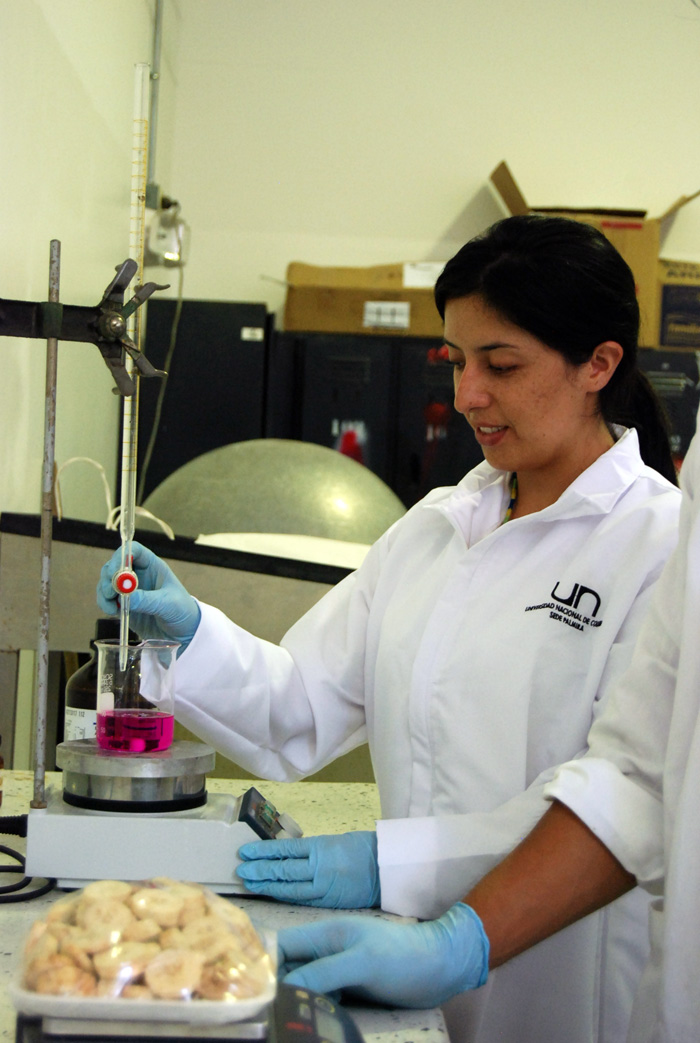Banana is one of the favorite fruits for Colombian households. It has high concentrations or fiber and carbohydrates, especially of a type called "FOS" (fructooligosaccharides) that helps the growing of beneficial bacteria for the colon. It not only contains micronutrients such as potassium, magnesium and folic acid, but also tannins, substances with powerful astringent properties.
Approximately since 1885, when banana crops started in Magdalena, using seeds from the Gross Michel variety from Panama, banana has been cropped in Colombia, and it has become one of the most important fruits for Colombian economy. Currently, around 95 thousand boxes per year are produced, representing 3% of the total exportations.
However, this fruit has a short shelf life due to a darkening mainly originated by the Polyphenol Oxidase enzymes, which affect the product"s quality for consumption and exportation.
Juan Camilo Briñas, an agroindustrial engineer, under supervision of Professor Saúl Dussán Sarria at Palmira"s Campus, assessed the effect of antioxidant agents, including package and cut type, on the life of minimally processed banana (MP), aiming at preserving the fruit a longer period.
"We stored the product for around 12 days at 11°C and with a relative humidity of (RH) of 85%, with citric acid (0.92%) and L-Cysteine (0.5%), and we put it in polyethylene terephthalate packages (PET) and on polystyrene trays covered with a PVC film to assess its life", asserted Briñas.
During the entire storage time, samples were taken every two days to assess the physical and chemical properties (titratable acidity, soluble solids, pH). Also, sensorial analysis of acceptation and color tests were made to demonstrate the good quality of the product.
According to Briñas "sliced banana, treated with citric acid as an antioxidant agent, on polystyrene trays covered with a PVC film, was the best treatment with the best preservation attributes during the 12 days of refrigerated storage.
The study showed that citric acid, as an antioxidant and antimicrobial agent, was more effective than L-Cysteine in sliced banana on polystyrene trays covered with a PVC film as polyethylene terephthalate.
Regarding the color of the fruit, bananas showed, by using the same procedure, high concentrations of L (luminosity) coordinate, without considering the type of cut used.
"This outcome can be attributed to the positive effect that citric acid has on the enzymatic darkening due to oxidation inhibition of phenolic compounds that cause such darkening", asserted Briñas.
For Professor Saúl Dússan Sarria, director of the research project, "this outcome indicates that research in preservation methods such as the use of antioxidant agents, storage conditions and the use of cold in sliced vegetable products, will foster the promising technology of minimally processed products in Colombia.
 Correo Electrónico
Correo Electrónico
 DNINFOA - SIA
DNINFOA - SIA
 Bibliotecas
Bibliotecas
 Convocatorias
Convocatorias
 Identidad UNAL
Identidad UNAL





